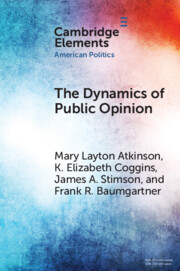Do the occupational backgrounds of politicians affect the government's agenda? Businesses have long thought so. The first occupational data on state legislators were collected by the Insurance Information Institute, an interest group representing major insurance companies. In this paper, we test one potential motive for these kinds of efforts: the idea that the occupational makeup of governments affects the agendas they pursue, an argument that has been largely neglected in research on politicians' occupational backgrounds. We focus here on the insurance industry. Using original data, we find that state legislatures with more former insurers consider fewer bills regulating insurance (negative agenda control), that former insurers play a disproportionate role in drafting the insurance bills that are introduced (positive agenda control), and that the bills former insurers introduce tend to be more favorable to the industry than those that their colleagues introduce (positive agenda control). The occupational makeup of legislatures may indeed affect their agendas, as industry groups have long suspected.
